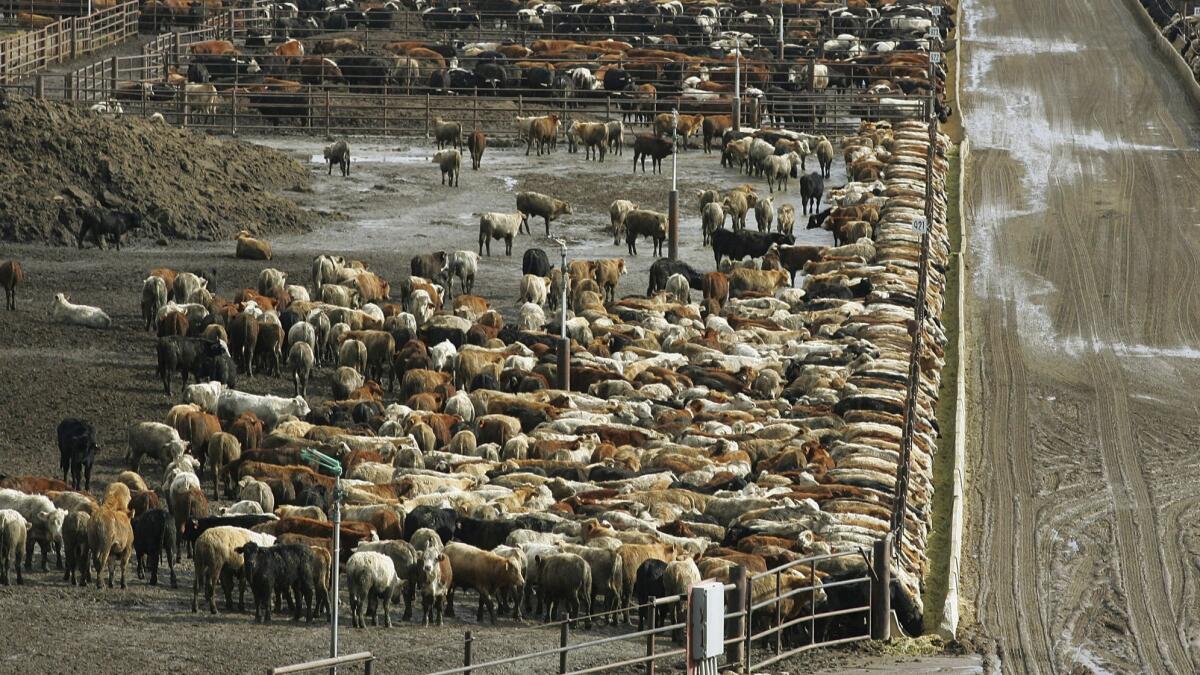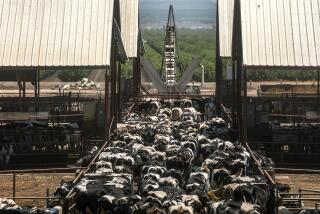Harris Ranch sells its cattle operation to Central Valley Meat

- Share via
Harris Ranch Beef Holding Co., California’s largest cattle-raising operation, is being sold.
The company’s 800-acre Central Valley feedlot, which can hold up to 250,000 cattle, and its slaughterhouse and processing facilities are being sold to Hanford-based Central Valley Meat Co. but will operate independently under the combined ownership of Central Valley Meat Holding Co., according to an announcement by the two companies.
The price and other details weren’t released.
The beef operations are part of Harris Farms Inc. of Coalinga, Calif. Founded in 1937, the family-owned agribusiness also has a thriving farming operation that produces more than 30 crops, from lettuce and garlic to pistachios and wine grapes; breeds thoroughbred horses; and runs a popular inn and restaurant, according to the company website.
The business has more than $400 million a year in sales.
Only its cattle operations are being sold.
“The Central Valley has long served as the home of some of the finest beef sold around the world. Today’s announcement cements a future for two family-owned beef operations to continue to thrive,” Harris Farms owner John Harris said in the April 9 sale announcement.
Central Valley Meat Co. was founded in 1993 and markets beef to retailers and food-service companies.
The company has faced difficulties in recent years, including a 2013 recall of more than 29 tons of ground beef destined for school lunches because of concerns that it may have contained plastic pieces, the Fresno Bee reported.
The processing plant also was briefly closed by federal regulators in 2014 for unsanitary conditions, the paper said.
More to Read
Inside the business of entertainment
The Wide Shot brings you news, analysis and insights on everything from streaming wars to production — and what it all means for the future.
You may occasionally receive promotional content from the Los Angeles Times.










